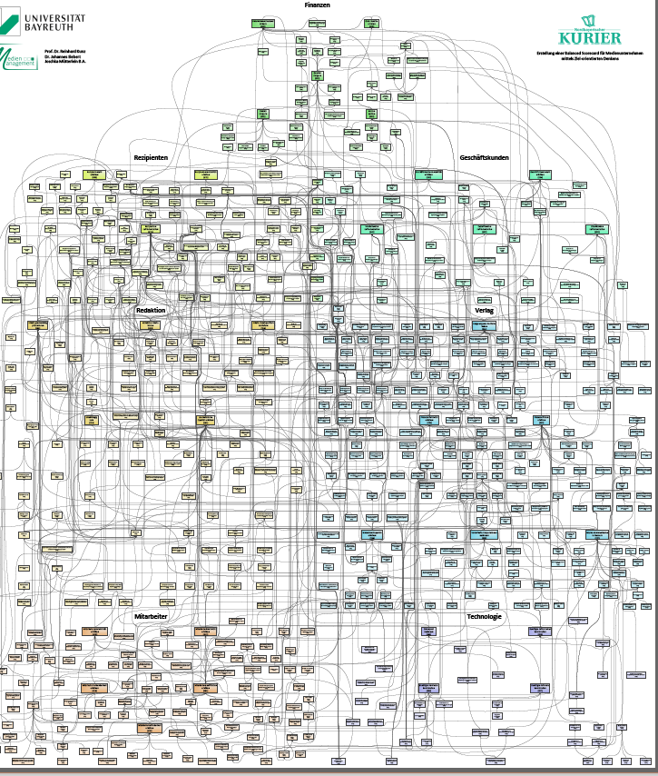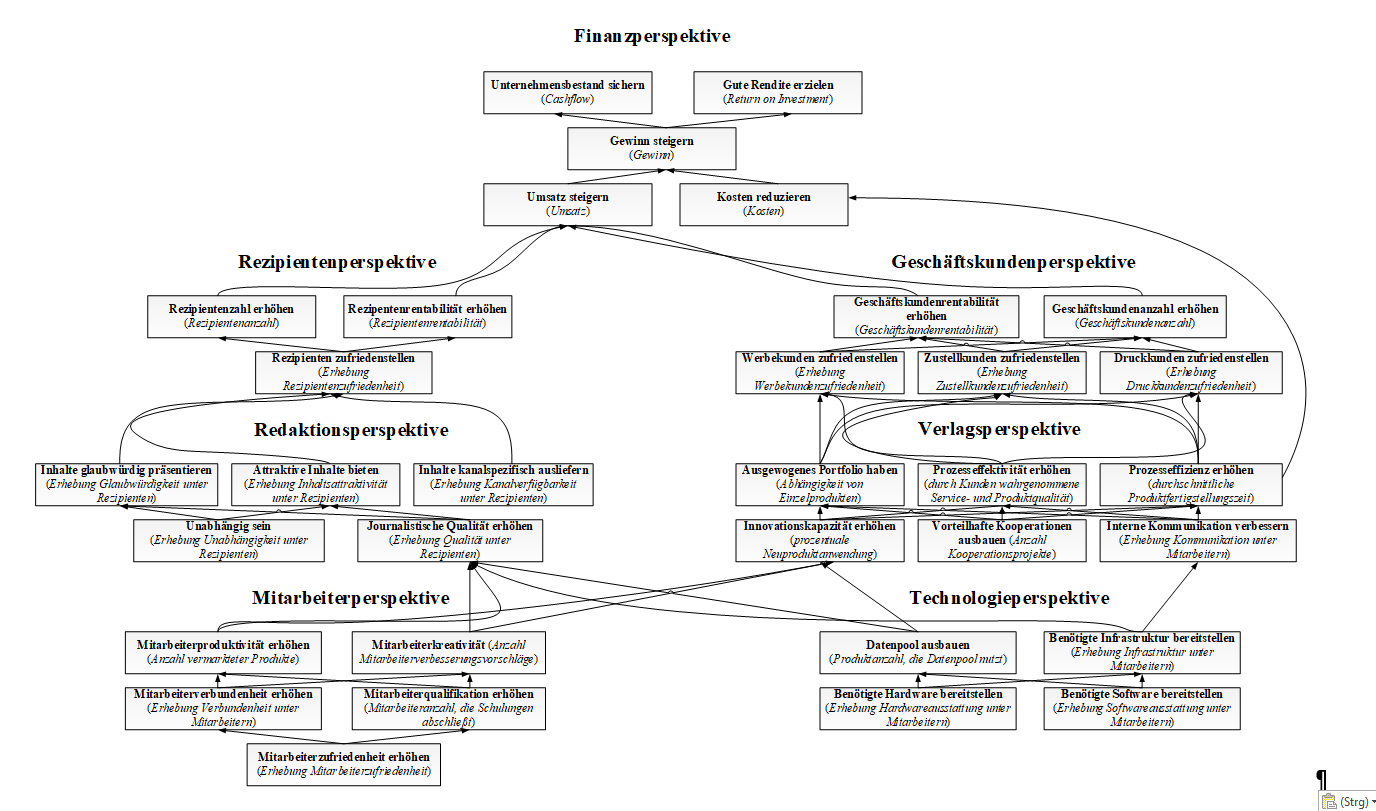
Publications
Siebert, Johannes U.; Kunz, Reinhard „Entwicklung einer Balanced Scorecard mit Value-focused Thinking am Beispiel eines mittelgroßen Medienunternehmens“. Controlling: Zeitschrift für erfolgsorientierte Unternehmenssteuerung, March 2016, 210-215. DOI: 10.15358/0935-0381-2016-3-209
Kunz, Reinhard; Siebert, Johannes; Mütterlein. “Combining Value-Focused Thinking and Balanced Scorecard to Improve Decision-Making in Strategic Management”, Journal of Multi-Criteria Decision Analysis, September-December, 2016, 225-241 DOI: 10.1002/mcda.1572
Kunz, Reinhard; Siebert, Johannes; Mütterlein, Joschka. „A Media-Specific Balanced Scorecard Based on Value-Focused Thinking“, Journal of Media Business Studies, 13(4), 2016, 257-275. http://www.tandfonline.com/doi/full/10.1080/16522354.2016.1220114
The Balanced Scorecard (Kaplan and Norton 1992) is one of the five management tools used most often and has been implemented by nearly 40 percent of the companies (Rigby and Bilodeau 2013). Yet, there is no theoretically sound approach for developing a balanced scorecard. Value-focused thinking is a decision-making philosophy that fits perfectly to Balanced Scorecard creation. It provides methods and techniques for the identification and structuring of objectives that are suitable to systematically derive a scorecard from a means-ends network. However, such a means-ends network is often too complex for enduring use in strategic management. By adapting the network’s structure to the Balanced Scorecard’s layout, the profound and clear set of derived objectives and their measures provide a reasonable basis for applying methods of multi-criteria decision-making in an organization. In a case study, we develop a media-specific Balanced Scorecard to provide media decision-makers with a model that takes characteristics of media management into account and that helps to manage their company successfully. Using a scientifically sound approach that is based on value-focused thinking (Keeney, 1992), we interview the publisher, the CEO, nine management representatives, and ten key employees of a German medium-sized local newspaper company. Overall, 698 distinct objectives and 1,009 relationships are identified. By concentrating on the most important objectives, we derive a Balanced Scorecard with 33 objectives and 65 relationships, which are organized in seven perspectives. Because of its innovativeness, this project was runner-up in the final of the Practice Awards der Decision Analysis Society (INFORMS).


Leave a Reply